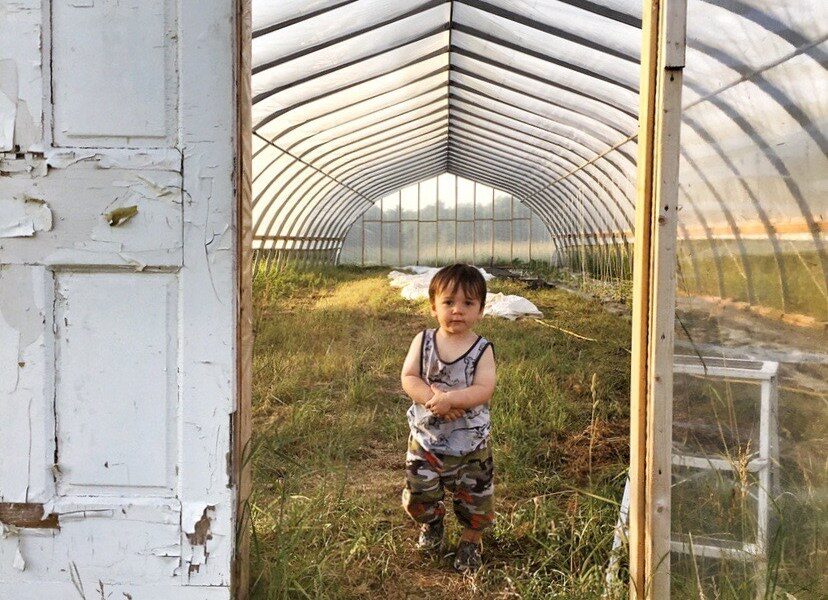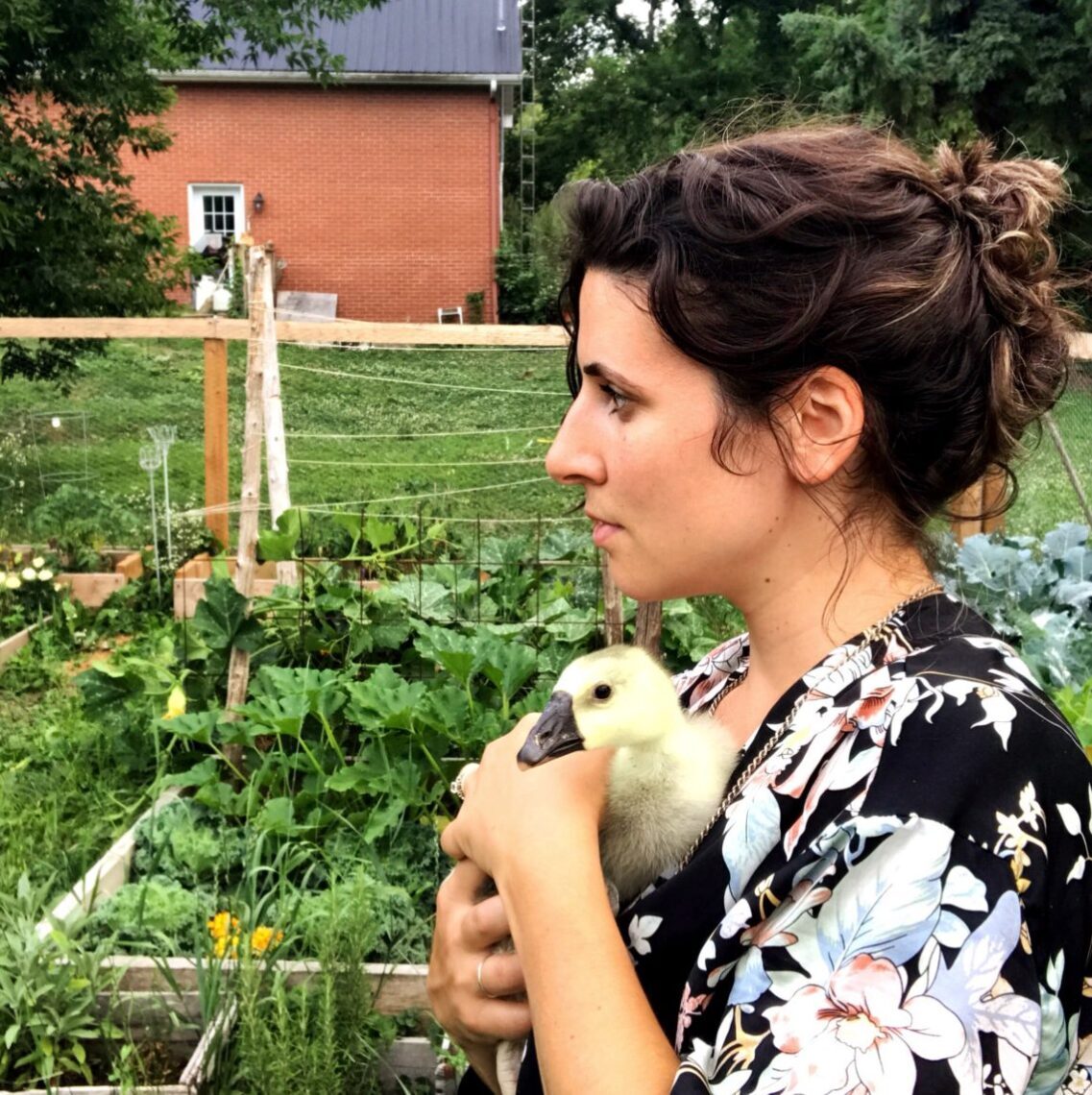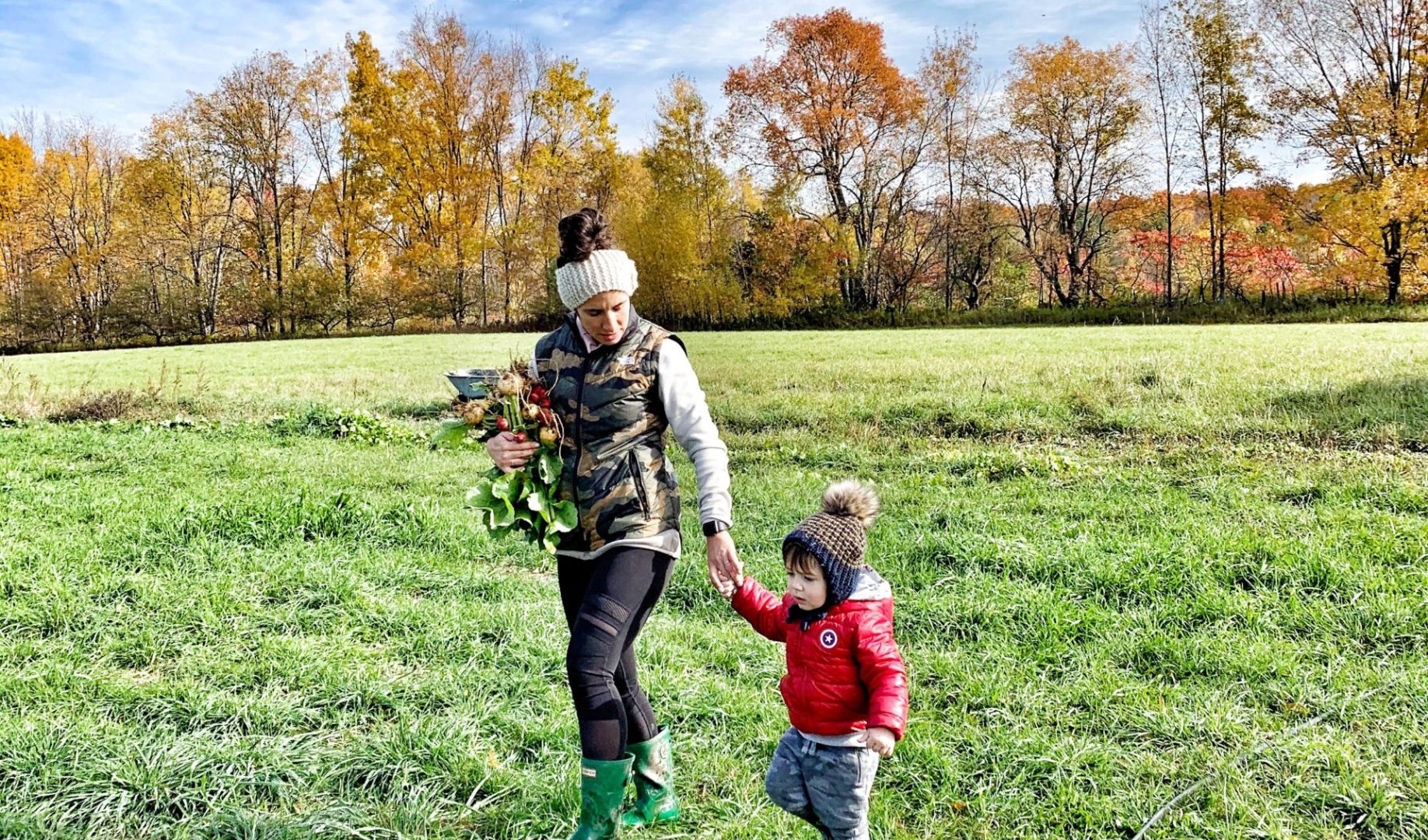
So, You Wanna Start A Farm?
After a lot of thinking, a bit of reading and a start-up grant, I decided to give this organic farming business a go in 2019. I spent the majority of the winter researching (and mentally calculating all the mistakes I had already made) and prepping for year one, without a hope in the world of succeeding. While I definitely didn’t make a fortune in the first year, the end of summer left me with a very good idea of what to expect for 2020 a.k.a. year two. When all was said and done, I had actually started a farm.
There’s no way around it—growing vegetables and/or fruit on a larger scale is hard. Like, REALLY tough some days. You won’t find a grower who will tell you otherwise. Farmer and author Andrea Bemis of Oregon’s Tumbleweed Farms real talks about this in her first book, Dishing Up the Dirt, as does Brent Preston of Ontario’s The New Farm. I had quite a few breakdowns while raking, where I would legit start crying and throw my rake down. I would literally ask myself, what were you thinking? You can’t do this. You have NO IDEA what you’re doing. Then I would shake myself off and keep raking. Of course, I was doing this work during naptimes, or days when I had childcare (and no one was sick, needing mommy time, etc.) so maybe things were a little harder than they usually are, but I assume we all have our obstacles.
Somehow, come June, I made deliveries, picked pounds of vegetables and berries (this takes a lot longer than you might think) and apologized for the state of my hands for most of the summer. I made invoices, packed coolers and weighed vegetables, grown by me from seed, and found that I didn’t even have enough to meet my clients’ needs. While I was discouraged, I was also optimistic, because at the end of the day, I knew there was a business here. I just had to work through it. At the end of the day, there was something incredible about being able to create something from scratch that was actually beneficial to the planet. It was fulfilling in a way that is hard to compare to anything else.
I’ve since spoken to a wonderful number of families who are hoping to do the same, so I thought I’d share some advice on starting a farm from scratch.
Here are some things that I wish I had been better prepared for:
- The paperwork. There really is so so much paperwork. The year prior, I started the process to obtain organic certification for our farm, especially since we had an old apple orchard in the back. Section off some time for filling in forms, etc. In my case, I needed some help translating, as I couldn’t understand all of the technical farming terms (everything is in French here in Quebec).
- Keep on top of your notes. My organic inspector told me to keep a gardening journal, which went to s*** in about five minutes. It would have helped a lot this year going into year two—all I have are my seeding notes, where my daily notes would have helped a ton this year.
- The amount of work that it takes to simply TILL a garden bed. I opted to use a small Husqvarna tiller, which is all I could budget for my first year—the breakdowns, the rocks, the RAKING, the removal of grass clumps. I had no idea how much actual time this would take, which left me behind when the season started. I also somehow got a faulty tiller, which left me empty-handed for a week when the season started.
- Every day counts. Being even a week behind leaves you at a disadvantage when it comes to supplying your customer base, which I was very lucky to have.
- Start garden planning in December or January. Trust me, you’ll need the extra time.
- At the end of the year, LOOK at your numbers. What worked out? What did growing this or that ACTUALLY cost you? The point is to be profitable, so when you’re busy farming, it’s easy to overlook the costs associated with different products.
- Buy a seeder. Lee Valley has some great ones, so consider picking one up. Hand seeding is way more time consuming than you might think.
Choosing A Seeder

How to Hatch Goslings
You May Also Like

How to Hatch Goslings
11 May 2020

2 Comments
best CBD for dogs
I’m really loving the theme/design of your web site.
Do you ever run into any internet browser compatibility issues?
A few of my blog readers have complained about my site not working
correctly in Explorer but looks great in Chrome. Do you have any suggestions to help fix this
issue?
Here is my blog post; best CBD for dogs
admin
Hi there. Nothing so far. Thanks for reaching out!